Every year, sometime in December, I begin to think about all the books I read that year, trying to determine which ones I liked the best and always wondering just how many I actually read. Every year I’m disappointed to find that I haven’t kept very good records so I really do not know how many books passed through my hands (my estimate this year would be between 100 and 150). Fortunately, because I review many of the books I read, I can at least generate a list of favorites.
Note that these are my favorite books. That is an admission that this is a subjective list of the books that I most enjoyed this year, not the books that were necessarily objectively best or most important (though hopefully there is some degree of correlation). Also, I’ve only included Christian books here. Except for the final book, the one I’ve determined is my absolute favorite, these come in no particular order.
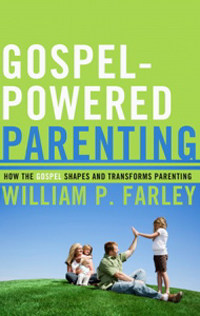 Gospel Powered Parenting by Bill Farley. It’s not like we’re hurting for more books on parenting, but Farley has still managed to find a niche and to fill it very well. His book is biblically-centered and gospel-focused. It is challenging in all the right ways and has given me a lot to chew on in my role as a parent.
Gospel Powered Parenting by Bill Farley. It’s not like we’re hurting for more books on parenting, but Farley has still managed to find a niche and to fill it very well. His book is biblically-centered and gospel-focused. It is challenging in all the right ways and has given me a lot to chew on in my role as a parent.
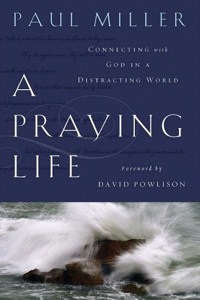 A Praying Life by Paul Miller. If there is no shortage of books on parenting there’s certainly no shortage of books on prayer. Many of these books focus predominantly on technique with little emphasis on theology; others go the theological route with little emphasis on technique. A Praying Life spans the gap, giving valuable thoughts on each. This is an ideal book for the Christian who continues to struggle with prayer and who finds little joy and confidence in his prayer life.
A Praying Life by Paul Miller. If there is no shortage of books on parenting there’s certainly no shortage of books on prayer. Many of these books focus predominantly on technique with little emphasis on theology; others go the theological route with little emphasis on technique. A Praying Life spans the gap, giving valuable thoughts on each. This is an ideal book for the Christian who continues to struggle with prayer and who finds little joy and confidence in his prayer life.
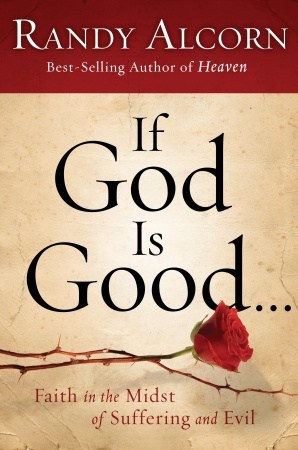 If God Is Good by Randy Alcorn. Alcorn offers an exhaustive treatment of God’s sovereignty through pain and suffering and does so with a great deal of humility and grace. I found this book both deeply challenging and greatly encouraging. It would be difficult to read the book and not come away trusting more in God’s sovereignty and in the goodness of his purposes even through the greatest trials.
If God Is Good by Randy Alcorn. Alcorn offers an exhaustive treatment of God’s sovereignty through pain and suffering and does so with a great deal of humility and grace. I found this book both deeply challenging and greatly encouraging. It would be difficult to read the book and not come away trusting more in God’s sovereignty and in the goodness of his purposes even through the greatest trials.
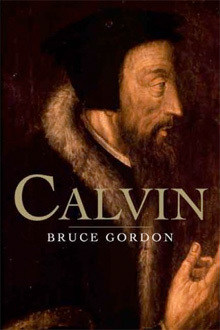 Calvin by Bruce Gordon. In a year that saw more than a handful of biographies of Calvin, I found this one to be the best. It was, at long last, the closest we have to a definitive biography of the great Reformer. Gordon especially excels at placing Calvin in his historical context, showing how he was a product of the unique societal and religious events of his time. Unlike many Calvin biographers, Gordon does not shy away from pointing out both the incredible strengths and the unfortunate weaknesses in Calvin’s character.
Calvin by Bruce Gordon. In a year that saw more than a handful of biographies of Calvin, I found this one to be the best. It was, at long last, the closest we have to a definitive biography of the great Reformer. Gordon especially excels at placing Calvin in his historical context, showing how he was a product of the unique societal and religious events of his time. Unlike many Calvin biographers, Gordon does not shy away from pointing out both the incredible strengths and the unfortunate weaknesses in Calvin’s character.
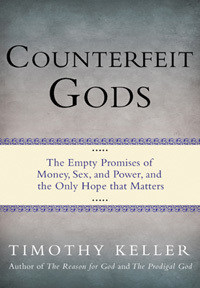 Counterfeit Gods by Tim Keller. Having read all three of Keller’s recent books, I found Counterfeit Gods the most convicting. While it will not be as widely-read as The Reason for God it deals very well with a very important topic. There is no one who is entirely immune to the lure of idolatry and Keller does an excellent job of showing how we can be free from those functional idols that seek to dominate our lives.
Counterfeit Gods by Tim Keller. Having read all three of Keller’s recent books, I found Counterfeit Gods the most convicting. While it will not be as widely-read as The Reason for God it deals very well with a very important topic. There is no one who is entirely immune to the lure of idolatry and Keller does an excellent job of showing how we can be free from those functional idols that seek to dominate our lives.
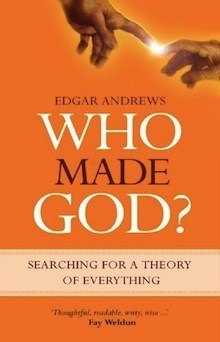 Who Made God? by Edgar Andrews. There have been many responses to the new atheists, some philosophical, some scientific, some theological. Andrews takes the scientific route here and does a fantastic job of showing that not all of the world’s prominent scientists are in the Darwinian, atheistic camp. He provides a rational, reasoned, methodical approach to refuting the tenets of the atheistic faith.
Who Made God? by Edgar Andrews. There have been many responses to the new atheists, some philosophical, some scientific, some theological. Andrews takes the scientific route here and does a fantastic job of showing that not all of the world’s prominent scientists are in the Darwinian, atheistic camp. He provides a rational, reasoned, methodical approach to refuting the tenets of the atheistic faith.
 Finally Alive by John Piper. I have read most of Piper’s recent releases and felt that this one stood apart. In Finally Alive Piper deals with the new birth, not only demolishing much of the unbiblical thinking on the topic but also replacing it with the beautiful truth. It is probably my favorite of all Piper’s books.
Finally Alive by John Piper. I have read most of Piper’s recent releases and felt that this one stood apart. In Finally Alive Piper deals with the new birth, not only demolishing much of the unbiblical thinking on the topic but also replacing it with the beautiful truth. It is probably my favorite of all Piper’s books.
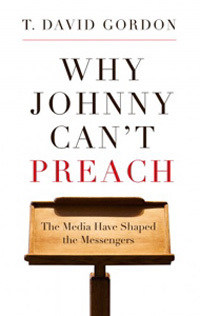 Why Johnny Can’t Preach by T. David Gordon. While this book occasionally overstates things and while it is only an introduction to a vast topic, I found it fascinating and convicting. Gordon looks at the role of media and societal changes in the changing face of preaching today. He shows how the media have inevitably shaped the message and the messengers.
Why Johnny Can’t Preach by T. David Gordon. While this book occasionally overstates things and while it is only an introduction to a vast topic, I found it fascinating and convicting. Gordon looks at the role of media and societal changes in the changing face of preaching today. He shows how the media have inevitably shaped the message and the messengers.
And now, my favorite book of 2009…
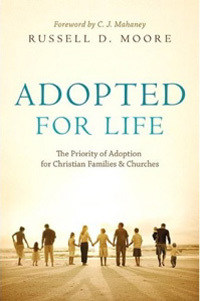 Adopted for Life by Russell Moore. The topic of adoption has been gaining increased attention in the church of late and for this I am very grateful. Moore’s book is a strong contribution to the discussion. I said in my review that I felt like Moore “left it all on the field” (borrowing a sports metaphor) with this book. I still feel that way. There was a passion behind his words that was so clear, so tangible. The book perfectly combines the theological foundation with the practical outworking of that theology. It has wisdom for the adopter, the adopted and the families, friends and churches of both. I hope many people will read this book and that it will be used by God to stir the hearts of many Christians as they consider adoption.
Adopted for Life by Russell Moore. The topic of adoption has been gaining increased attention in the church of late and for this I am very grateful. Moore’s book is a strong contribution to the discussion. I said in my review that I felt like Moore “left it all on the field” (borrowing a sports metaphor) with this book. I still feel that way. There was a passion behind his words that was so clear, so tangible. The book perfectly combines the theological foundation with the practical outworking of that theology. It has wisdom for the adopter, the adopted and the families, friends and churches of both. I hope many people will read this book and that it will be used by God to stir the hearts of many Christians as they consider adoption.
Honorable Mentions
Unleashing the Word by Max McLean. This one may have made the list but for a few theological issues I noted within it. I was thrilled to read such a good book on such a good topic (the public reading of the Word of God) but was a mite disappointed in just a few of the little theological issues it exposed.
Forgotten God by Francis Chan. I really like what I see of Francis Chan’s ministry. While this book is not without a couple of concerns, I really do appreciate Chan’s call to seek to recover a biblical understanding of the role of the Holy Spirit in the life of the believer. It is a message many Christians desperately need to hear.
This Momentary Marriage by John Piper. Piper waited a really long time to write this book and the result was worth the wait. He deals well with the joys and the pains of marriage. I disagree with some of his premises but still found the book a very valuable and stirring read.










